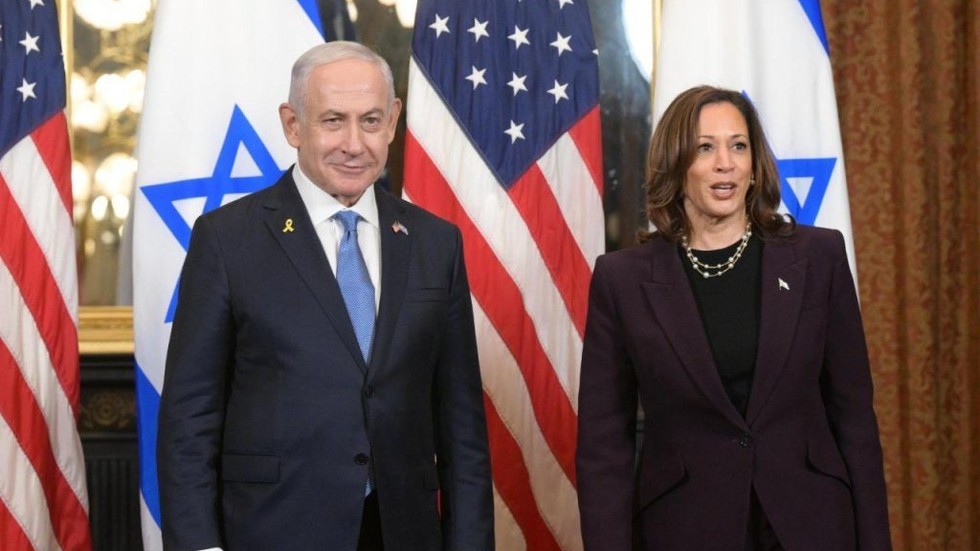The dynamics between the United States and Israel, particularly under the leadership of Prime Minister Benjamin Netanyahu, have become increasingly strained, especially following recent military conflicts in the region. Vice President Kamala Harris’s evasive response during a ‘60 Minutes’ interview regarding Netanyahu’s status as a close ally illustrates the current turmoil in U.S.-Israeli relations. Harris faced tough questions about America’s considerable military aid to Israel and its seemingly diminishing influence over the Israeli leader. Her emphasis was on the broader alliance between the American and Israeli peoples rather than a personal rapport between the leaders, indicating a potential pivot in U.S. foreign policy perspective, necessitated by the mounting challenges from both pro-Israeli and pro-Palestinian factions within the Democratic party.
The backdrop to Harris’s comments is a complex political landscape. Since her emergence as the Democratic presidential candidate, she has found herself in a precarious position, navigating the competing demands of different factions and the expectations associated with U.S. support for Israel. Harris’s declarations about supporting an independent Palestinian state while assuring continued military support for Israel demonstrate the balancing act she is attempting to achieve. This dichotomy highlights the deep divisions within political ranks, complicating a cohesive American stance in the Middle East. Calls for ongoing dialogue and potential ceasefires have often been met with resistance or outright defiance from Netanyahu, raising questions about the effectiveness of U.S. diplomacy.
Continuously at odds with Washington’s advice, Netanyahu’s dismissal of American calls for de-escalation further complicates bilateral relations. His actions, including a recent aggressive military stance against Hezbollah and a controversial assassination order, have not only defied U.S. requests but also drawn criticisms from within own party and among international observers. Reports indicate that Netanyahu’s decisions may be influenced by his political desires, notably his perceived alignment with Donald Trump in the U.S. presidential landscape. The repeated assurances to Biden and Harris that he would consider a ceasefire, followed by drastic military actions, have sparked frustrations in Washington, as these incidents portray a lack of genuine cooperation.
President Biden himself underscored the historical depth of U.S.-Israel relations, reminding Netanyahu of the unprecedented level of support his administration has offered Israel. Despite Biden’s assertions of being Israel’s strongest ally, the apparent disconnect showcased by Netanyahu’s actions raises concerns over the reliability of the U.S. as a mediator in regional conflicts. This tension reveals the delicate nature of international diplomacy and highlights the vulnerabilities inherent in alliances that rely heavily on shared interests and political commitments. The situation is particularly precarious as the U.S. seeks to maintain its influence in a volatile region while addressing the grievances and aspirations of both sides involved in the ongoing conflict.
With military tensions escalating, the potential for a broader conflict remains a significant concern. The fear of Netanyahu’s actions sparking wider hostilities, especially regarding Iran’s involvement and retaliation, compels U.S. officials to advocate for restraint. American policymakers are acutely aware that regional instability could have widespread implications, not just for Israel and its neighbors but for global security as well. The recent military endeavors and Netanyahu’s aggressive rhetoric underline the urgent need for a coordinated international response to prevent further escalation, as the implications of any conflict extend far beyond local borders.
Ultimately, the challenges in U.S.-Israeli relations going forward will hinge on the ability of American leadership to navigate the complex tapestry of regional politics while maintaining essential alliances. As Vice President Harris attempts to stabilize her position within divergent party factions, the call for a more robust policy on both humanitarian grounds and military support will likely continue to be a contentious discussion point. As the Biden administration contemplates its next steps, the unpredictability of Netanyahu’s decisions poses a formidable obstacle to achieving lasting peace and stability in an already tumultuous region. The need for strategic diplomacy and an aligned understanding of priorities between the U.S. and its allies will remain crucial in addressing the unfolding crises and ensuring that future collaborations foster peace rather than conflict.

